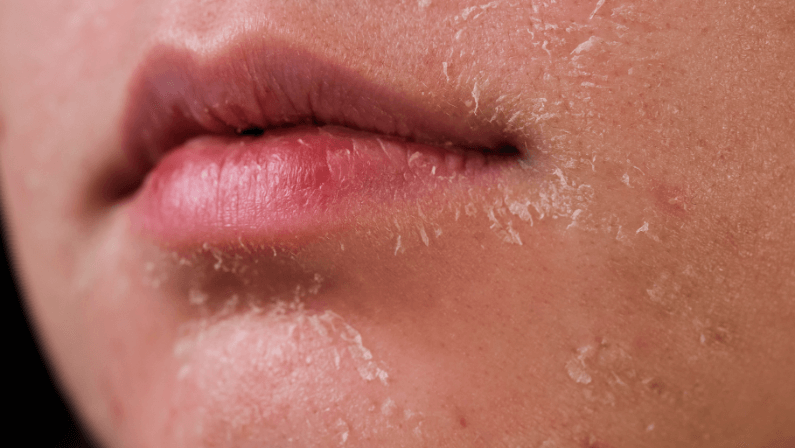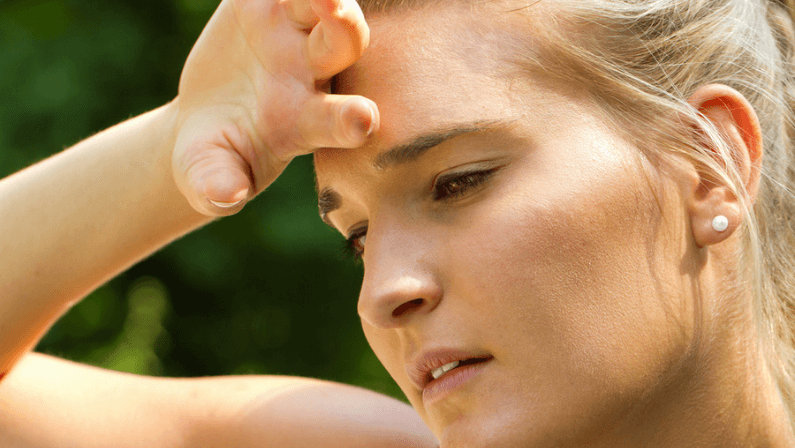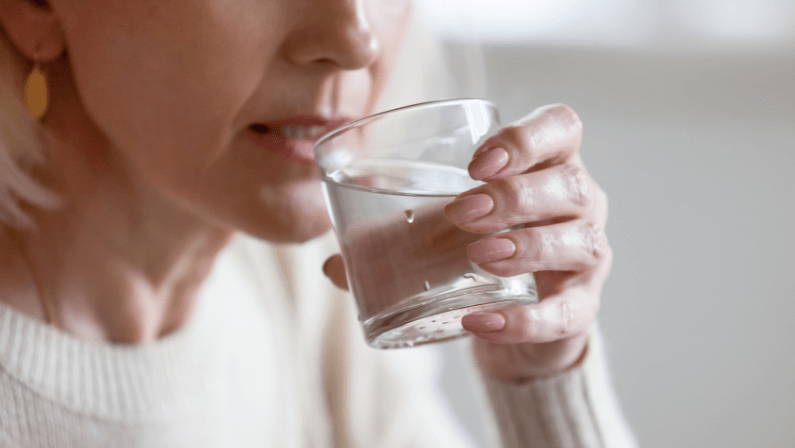Dehydration, a condition often underestimated, can have major effects on the body. It can affect everything—from cognitive function to physical performance.
Thus, it is important to recover immediately so you can go back to your normal routine.
In this article, we’ll discuss the symptoms of severe dehydration, its causes, and everything about dehydration recovery time.
What is Dehydration?
Dehydration, a state where the body loses more fluids than it receives, disrupts the delicate balance essential for optimal physiological function.
This condition arises when water loss surpasses intake, impairing the body’s ability to perform crucial processes.
What Are the Symptoms of Dehydration?

In order for you to recover fast, you need to determine first if what you are experiencing is actually dehydration. This will prompt effective intervention and lower the chances of having health risks out of it.
- Increased Thirst: The body’s initial plea for fluids.
- Dark Urine: Signaling concentrated waste and dehydration.
- Dry Mouth: A common indicator of inadequate hydration.
- Fatigue: Resulting from reduced energy transport.
- Dizziness: Warning of compromised circulation.
Others also report signs of dehydration and stomach pain, which may need further assessment from a healthcare expert.
Causes of Dehydration
Dehydration can stem from various factors that disrupt the delicate balance of fluid intake and loss within the body.
Here are the common causes of dehydration:
- Inadequate Fluid Intake: Failing to consume enough fluids through drinks and hydrating foods.
- Excessive Sweating: Intense physical activity or hot environments can lead to significant fluid loss.
- Illnesses and Infections: Fever, vomiting, and diarrhea contribute to dehydration by depleting vital fluids.
- Certain Medications: Some medications may have diuretic effects, accelerating fluid loss.

Who Can Get Dehydrated?
Dehydration is not exclusive to any particular demographic. It can affect individuals across various age groups and lifestyles.
- Athletes: Intense physical activity increases fluid requirements and the risk of dehydration.
- Elderly Individuals: Age-related changes can diminish the sensation of thirst, making dehydration more common.
- Children: Their smaller body size and higher turnover of water make them susceptible.
- Those with Chronic Conditions: Individuals with diabetes or kidney issues may face an increased risk.
How Can You Tell If You Are Dehydrated?
Ensuring proper hydration is vital for overall health, but recognizing dehydration in its early stages can be challenging. Thankfully, there are simple self-assessment methods that provide valuable insights into your hydration status.

The Skin Elasticity Test
One effective way to assess hydration levels is the skin elasticity test. Pinch a small amount of skin on the back of your hand and observe how quickly it returns to its normal position. Dehydrated skin may not snap back as swiftly, indicating a potential lack of fluids in the body.
The Nail Test
Examine your nails for hydration clues. Healthy, well-hydrated nails are pliable and smooth. Dehydration can manifest as brittle or ridged nails. Observing changes in nail texture and appearance provides valuable information about your body’s hydration status.
The Pee Test
The color of your urine can be a reliable indicator of hydration. Light yellow or pale straw-colored urine typically suggests adequate hydration. Darker urine may indicate dehydration. Monitoring urine color, along with paying attention to frequency, provides valuable insights into your body’s fluid balance.
By incorporating these self-assessment methods into your routine, you can manage your hydration levels and support your overall well-being.
Otherwise, if you think you need expert medical care to handle the situation, you can go directly to Aether Health for immediate testing for extreme dehydration.
What Happens to Your Body When You’re Dehydrated?
When severe effects of dehydration sets in, a cascade of physiological changes unfolds within the body, affecting various systems.
Initially, the lack of sufficient fluids impairs the body’s ability to regulate temperature, leading to increased fatigue and diminished cognitive function.
As dehydration progresses, blood volume decreases, straining the cardiovascular system and resulting in elevated heart rate. Electrolyte imbalances may occur, impacting muscle function and causing cramps.
The kidneys, vital for waste elimination, also face challenges, potentially leading to concentrated and darker urine.

Diagnosis for Dehydration
Diagnosing dehydration involves a combination of clinical assessments and laboratory tests to accurately gauge the extent of fluid imbalance.
Healthcare professionals typically consider various indicators during physical examinations and may order blood tests to assess electrolyte levels and kidney function.
- Clinical Evaluation: Healthcare providers assess symptoms like increased thirst, dry mouth, and low urine output during a physical examination to diagnose dehydration.
- Blood Tests: Measuring electrolyte levels, such as sodium and potassium, through blood tests helps determine the severity of dehydration and guides appropriate treatment.
- Urine Tests: Analyzing the concentration and color of urine provides insights into hydration levels, aiding in the diagnostic process.
- Weight Measurement: Monitoring changes in body weight helps evaluate the extent of fluid loss and guides healthcare professionals in tailoring dehydration treatment plans.
Treatments for Dehydration
Effectively addressing dehydration involves replenishing lost fluids and addressing underlying causes. Severe dehydration treatment varies based on the severity of dehydration and individual health factors.
- Oral rehydration: Mild to moderate dehydration often responds well to oral rehydration solutions, which contain a balanced mix of water, salts, and sugars.
- Intravenous (IV) fluids: Severe dehydration may require dehydration IV administration of fluids in a clinical setting to rapidly restore electrolyte balance and fluid levels.
- Identifying and addressing underlying causes: Treating the root causes , such as infections or underlying medical conditions, is crucial for preventing recurrent episodes of dehydration.
- Gradual reintroduction of food and fluids: After initial treatment, a healthcare provider may recommend a gradual reintroduction of food and fluids to ensure sustained recovery without overwhelming the body.
There are also instances when healthcare professionals may use rehydrator to get immediate treatment.
Possible Complications and Side Effects
While dehydration is a common and treatable condition, its complications and side effects can pose significant health risks if not addressed promptly.
- Electrolyte Imbalances: Dehydration can disrupt the balance of essential electrolytes in the body, such as sodium and potassium, potentially leading to muscle cramps, irregular heartbeats, and even seizures.
- Heat-related Illnesses: In hot environments, dehydration increases the risk of heat-related illnesses, including heat exhaustion and heat stroke, characterized by symptoms like nausea, confusion, and loss of consciousness.
- Kidney Damage: Persistent dehydration can strain the kidneys, impairing their ability to filter waste and leading to kidney stones or more severe conditions like acute kidney injury.
- Cognitive Impairment: Dehydration can impact cognitive function, causing difficulty concentrating, memory issues, and, in severe cases, delirium, emphasizing the importance of maintaining proper hydration for overall brain health.
How Long Does It Take to Rehydrate the Body?
When it comes to recovering from dehydration, the duration required depends on the severity of dehydration and the chosen rehydration method.
In cases of mild dehydration, where symptoms include increased thirst and darker urine, prompt action through oral rehydration solutions may lead to noticeable improvements within a few hours.
For more severe dehydration, especially those requiring intravenous (IV) fluids administered in a clinical setting, the rehydration process may extend over several hours.
How Do I Prevent Dehydration?
Simple yet effective strategies in your daily routine help in adequate hydration and mitigate the risk of dehydration-related complications.
- Stay hydrated throughout the day: Consistently drink water throughout the day, even if you don’t feel thirsty, to maintain a steady fluid balance in your body. Carry a reusable water bottle to make hydration easily accessible.
- Monitor fluid loss during physical activity: Engage in regular physical activity, but be mindful of fluid loss through sweating. Drink water before, during, and after exercise to replenish lost fluids and electrolytes, adjusting intake based on the intensity and duration of your activity.
- Hydrate in hot weather: In hot and humid conditions, increase fluid intake to compensate for additional fluid loss through sweating. Opt for hydrating foods like fruits and vegetables, and wear lightweight clothing to regulate body temperature.
- Be mindful of alcohol and caffeine consumption: Limit the consumption of alcohol and caffeinated beverages, as they can contribute to dehydration. If you indulge in these beverages, offset their effects by drinking additional water to maintain hydration.

How Much Water Should You Be Drinking?
While individual water needs vary based on factors such as age, weight, activity level, and climate, a general guideline recommends about eight 8-ounce glasses of water per day, commonly known as the “8×8 rule.”
However, individual hydration requirements can be more accurately gauged by considering factors like physical activity, climate conditions, and health status.
Listening to the body’s cues, such as thirst, and adjusting water intake accordingly is key, as is incorporating hydrating foods and beverages into the daily diet.
When to Go to the ER for Dehydration?
Recognizing the severity of dehydration is essential, and in certain cases, seeking immediate medical attention in the emergency room is crucial.
If symptoms persist or worsen despite attempts at oral rehydration, it is advisable to visit the emergency room.
Additionally, individuals should seek urgent medical care if they experience severe symptoms such as rapid heartbeat, confusion, extreme thirst, and minimal urine output or if they belong to vulnerable groups such as infants, elderly individuals, or those with pre-existing medical conditions.
Prioritizing Hydration for Optimal Well-Being
Remember, hydration is not a one-size-fits-all equation, and individual needs vary. Listening to your body, adopting mindful habits, and seeking professional advice when necessary are integral to preventing and managing dehydration.
For individuals needing urgent care or ER for dehydration, Aether Health is your go-to, trusted, and reliable neighborhood emergency facility in Texas.
Our healthcare professionals are committed to providing prompt and effective care, prioritizing your well-being. Contact us or check in online today to get immediate care on our Kingwood and Pearland locations.



